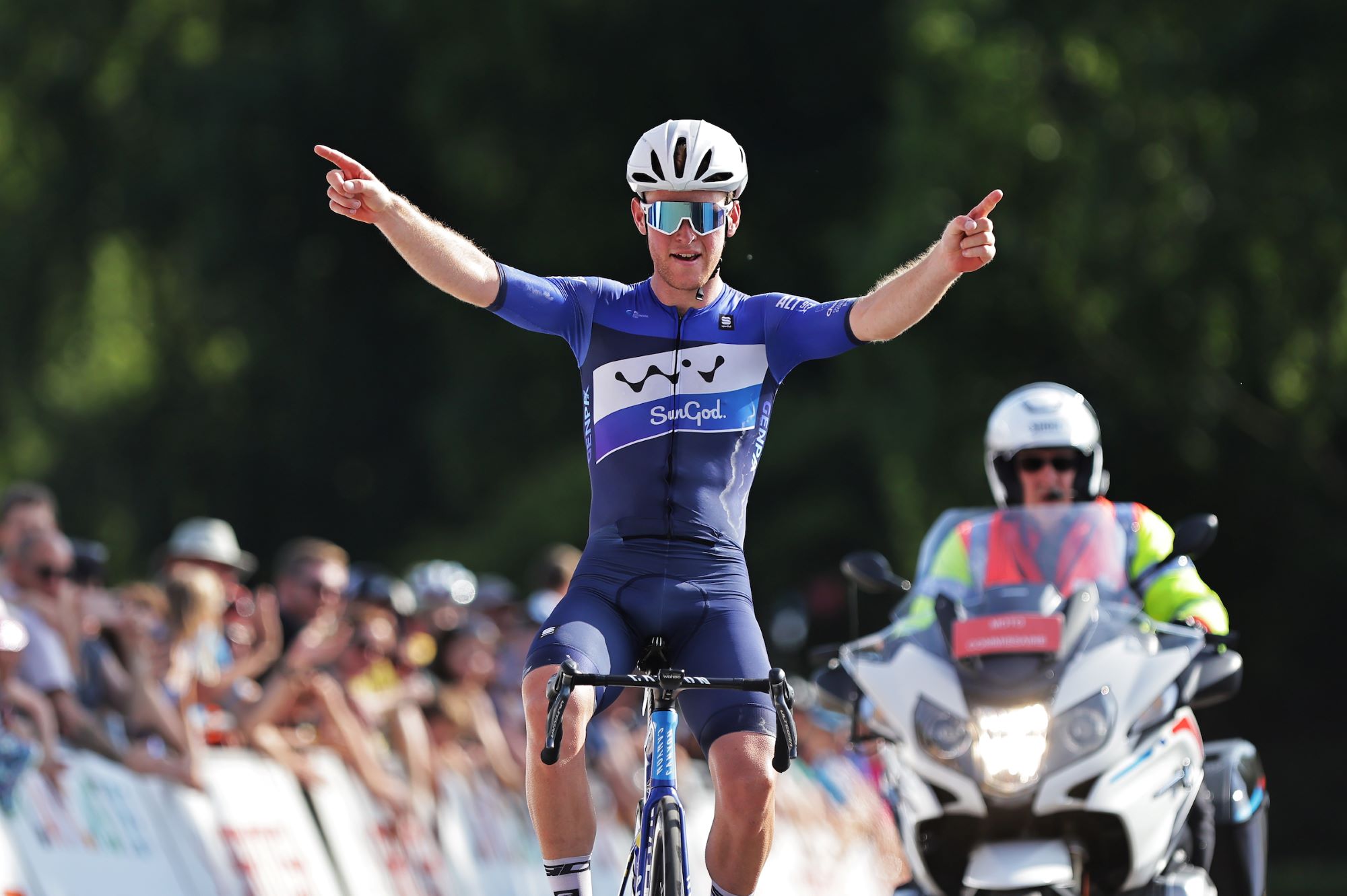Cowbells, caps and a sustainable sponsorship model: How the Lincoln GP survived and is set to thrive
Britain's most iconic domestic race has secured its immediate future; could it be a lesson to other races?
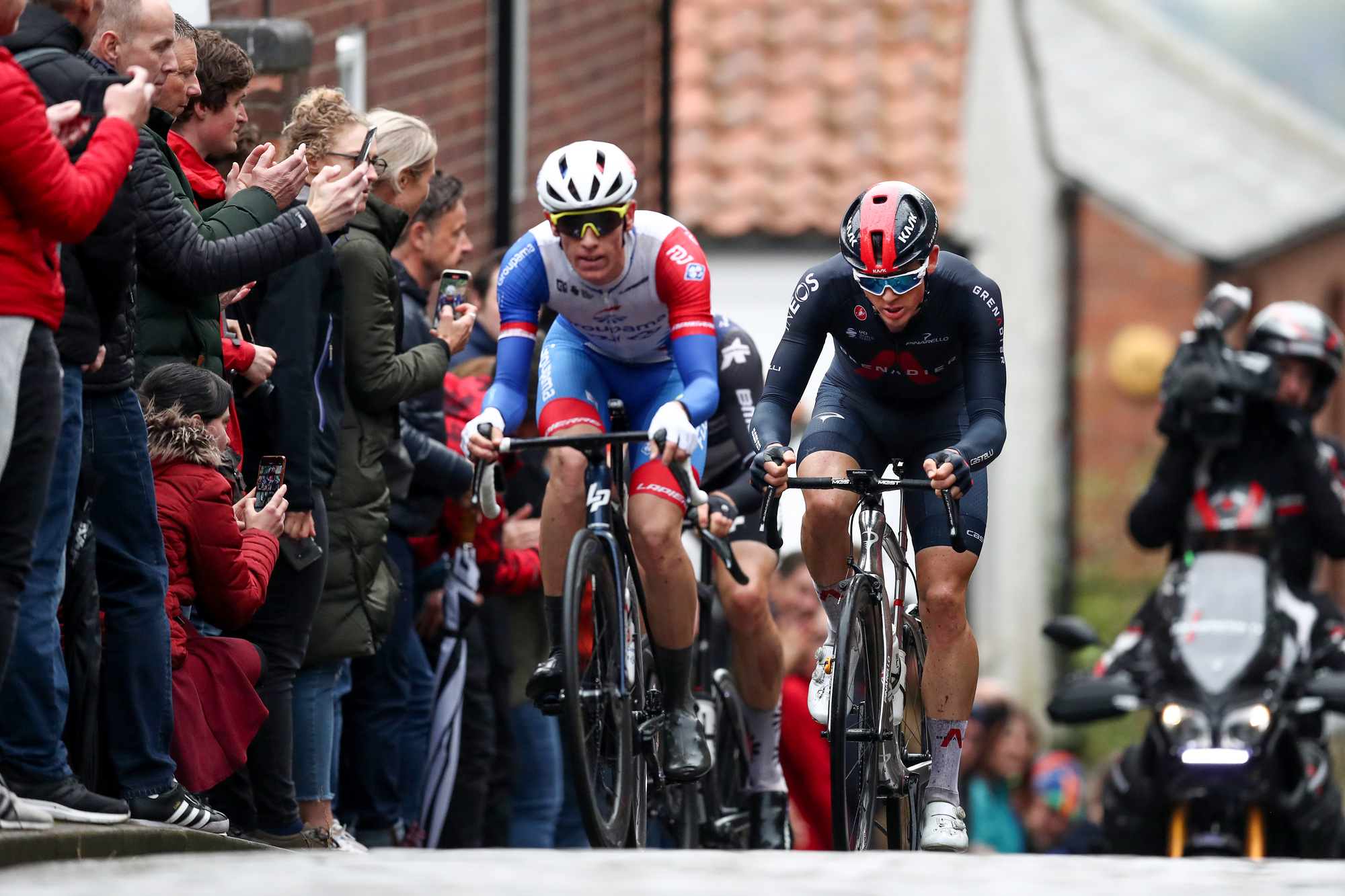

Even before the world came to an abrupt halt in March 2020, domestic racing in Britain was facing a crisis, with five high-profile races not set to run that year due to monetary concerns. Top of the list was the iconic Lincoln GP.
First run in 1956, the fabled race that finishes atop the cobbled Michaelgate climb had lost its title sponsorship Chestnut Homes and faced a funding blackhole of £20,000 to run both the male and female races.
When Cycling Weekly wrote about the news, it prompted an outcry. Everywhere race organiser Dan Ellmore turned, he heard the same protest: Lincoln cannot not go ahead!
"The race has a massive misunderstanding of its identity," Ellmore tells CW. "In Lincoln, the businesses have this misconception that it's been going so long that it always goes ahead. It's like the London Marathon - it's just part of the city's fabric.
"You have half the world saying it can't not run, and half saying we'll take photos to make it look like we're involved but we won't chip in and sponsor it with £500."
Basically, everyone wanted a slice of the proverbial cake, but didn't want to pay for the tasting. The threat was real though. "If we didn't get a title sponsor, the race wasn't running. It was as clear as that," Ellmore adds.
Cycling Weekly's article spread across the internet. Picking up on it was Jess Morgan, PR and communications manager at clothing company Rapha.
Get The Leadout Newsletter
The latest race content, interviews, features, reviews and expert buying guides, direct to your inbox!
"I'd seen all these teams and riders posting about it, and I knew it was the longest running race in the UK, a cornerstone of the domestic calendar," Morgan explains.
"I got in touch with Dan to see about some sponsorship opportunities and I took it away to the big bosses at Rapha saying we should save this race."
Morgan took her enquiry to the brand's founder and CEO, Simon Mottram. He was unequivocal in his response: Rapha had to step in.
"The Lincoln Grand Prix has always been the UK’s equivalent of a ‘Monument’ and it’s brought us many great racing memories, starting with Dean Downing’s win for Rapha-Condor in 2007," Mottram says. Funding was provided and the race's future was secure for two more editions.
Aside from the racing connection, there was also another incentive to sponsor the race. As popular and respected as Rapha is as a brand, it still attracts perceptions of being London-centric, of being the brand for rich folk.
Here was a golden opportunity to help dispel that idea and, as Ellmore adds, "spread their wings further north and show people their commitment to all levels of cycling. The deal worked so well for both parties."
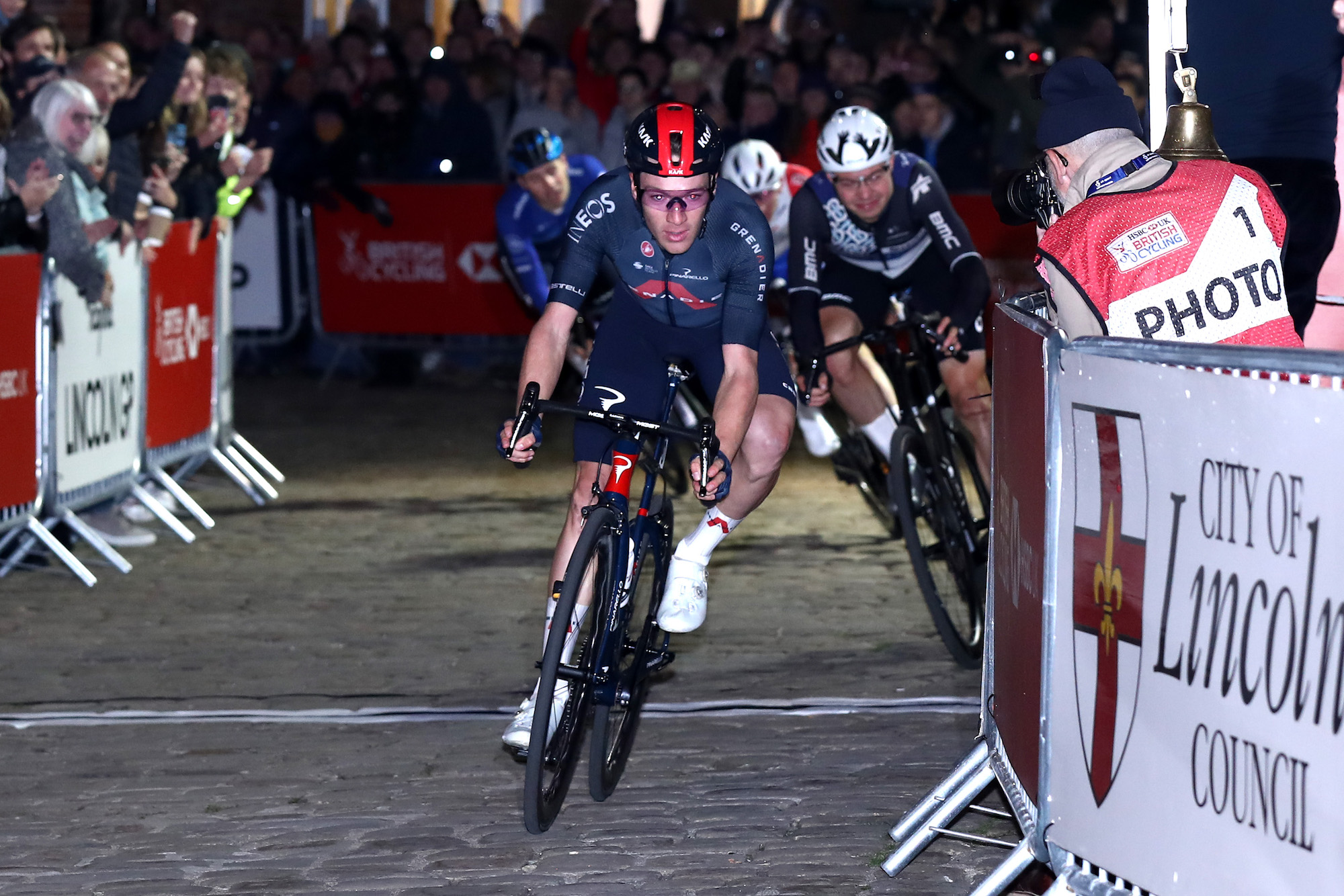
Ethan Hayter of Ineos Grenadiers won the National Circuit Championships in Lincoln this October on the race's return
Then, of course, came Covid-19. Domestic racing took a further battering and didn't resume until this summer, by which point the 2020 Lincoln GP had been cancelled, and the 2021 edition had been shunted to October.
By a quirk of fortune, the National Championships were slated to be held on the same weekend, so British Cycling naturally asked Lincoln to host the event for the second time in six years.
Ellmore and his crew would have to organise a four-day racing bonanza - including for the first time ever the time trial, circuit and road championships being held in a collective block - in just four months.
"Rapha lucked out with their first year being the Nationals but they deserved it. They came in for a one-day race and got a four-day one with 10 hours of live TV, but they were in the right place at the right time. They couldn't have had a better first event."
Crowds swelled with it being the Nationals, and Rapha exploited the numbers by devising a marketing plan that would give them a 100 per cent return on investment.
They designed 500 caps based around the old VC Lincoln club kit, selling every single one of them for £20, alongside a free cowbell. The city was ringing.
"We thought that if we could sell some of these caps, it would become a lot less of a financial chunk and we could allocate budget to making the racing experience even better," Morgan explains.
"And the caps flew. We sold them all by midday Sunday, so much so I didn't even have any caps I'd promised to give to volunteers.
"The cowbells were a brainwave because people were coming up asking for them, but we'd say you could only get them with a cap, so they naturally bought the cap. The race grew in volume and these cowbells and caps were everywhere. It added to the experience and showed us that the race has a future."
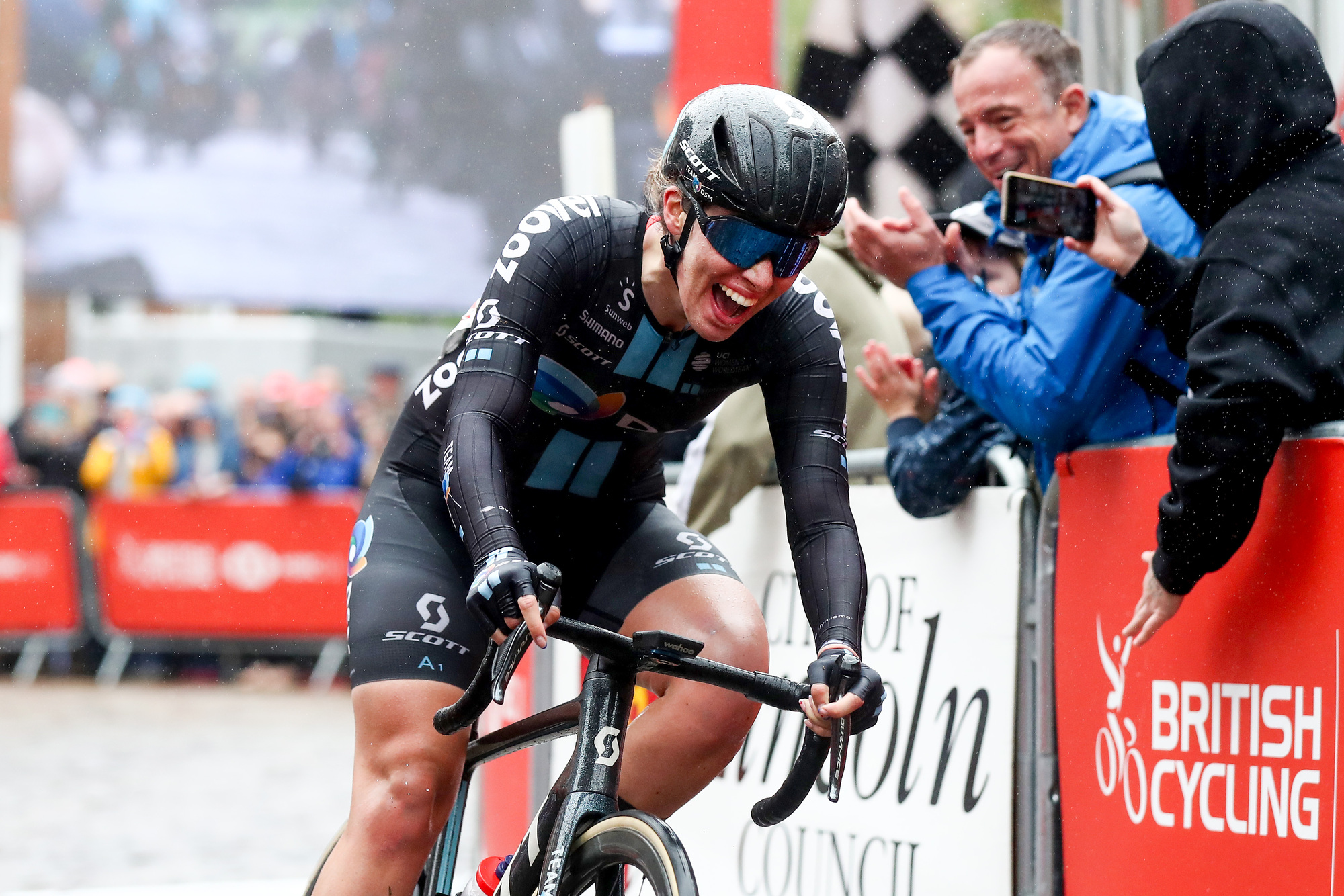
Pfieffer Georgi became the women's national champion for the first time
Along with giving out free coffees and having a pop-up bar, Rapha had done something that races across the globe have been trying to do for decades: they had run a race that could actually run a profit.
"We're not the only brand that makes caps," Morgan says. "With the groundswell of support from fans to support the race without needing to hand over a big cheque and instead just buy some merchandise, we proved its a financial model that others can replicate."
Ellmore is thankful. "We couldn't make our own merchandise and run a profit because we're not Roubaix or Flanders, but Rapha can and that's a huge string to the partnership's bow. Rapha's attitude that if you don't buy it [the cap] now, you'll never get it created that desire."
With just seven months to go until the following edition, Ellmore still needs to secure additional smaller amounts of funding for the 2022 race, quantities between £500 and £2,000. "Some companies can't pay twice in one year," he says, "but because it's after April 5 and in a new financial year, we're hopeful the council and others can chip in again.
"I'm optimistic about the future. We've had some great feedback from this year and it's a mutual beneficial deal."
Rapha will be sponsoring the 2022 race as part of an initial two-year contract, and are likely to continue their backing beyond then. The caps will be updated next year to help form a collector's item.
Rapha and Ellmore are realistic that next year's event will be smaller due to returning to its traditional early May calendar and being run solely as part of the National Road Series. But the race's rebirth has heralded a new market.
"The photos, the films from the weekend, all that would have created a big FOMO [fear of missing out] for people seeing it on social media," Morgan believes.
"People have seen how good it looked, how noisy it was, and will come next year because they've seen it's a great race and everyone has loads of fun. It's driven demand to get people to go and watch racing. It's about building on the success and getting even more people there."
Mottram has the last word: "It was such a pleasure this year to be back on Michaelgate, cheering the riders and being at the heart of UK road racing," he smiled.
"We are proud to have helped this great race get back to the top of the pile, where it belongs."

Thank you for reading 20 articles this month* Join now for unlimited access
Enjoy your first month for just £1 / $1 / €1
*Read 5 free articles per month without a subscription

Join now for unlimited access
Try first month for just £1 / $1 / €1
A freelance sports journalist and podcaster, you'll mostly find Chris's byline attached to news scoops, profile interviews and long reads across a variety of different publications. He has been writing regularly for Cycling Weekly since 2013. In 2024 he released a seven-part podcast documentary, Ghost in the Machine, about motor doping in cycling.
Previously a ski, hiking and cycling guide in the Canadian Rockies and Spanish Pyrenees, he almost certainly holds the record for the most number of interviews conducted from snowy mountains. He lives in Valencia, Spain.
-
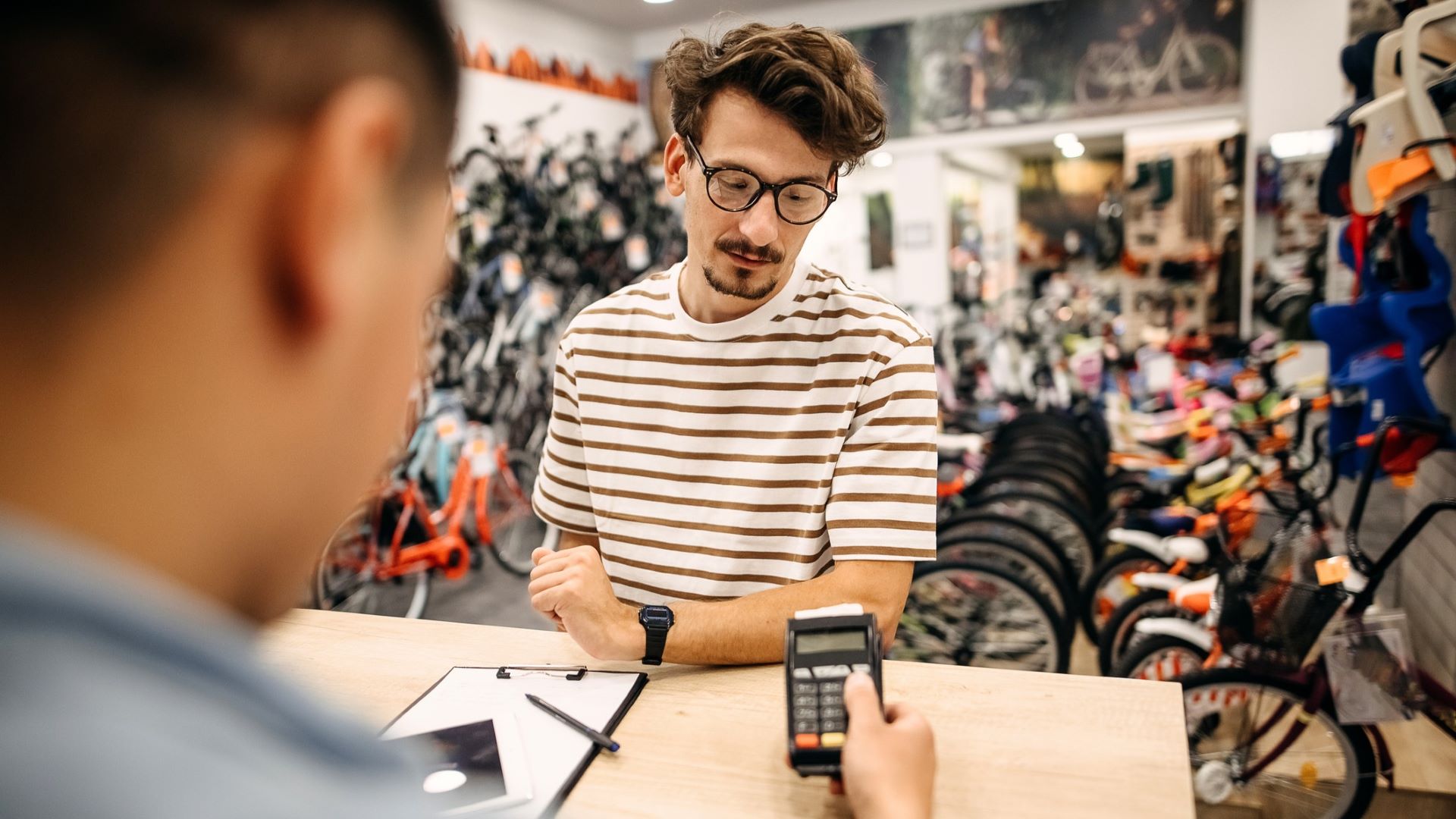 Trek, State and Specialized raise bike prices while other brands limit US releases — Is this just the beginning?
Trek, State and Specialized raise bike prices while other brands limit US releases — Is this just the beginning?As tariffs hit, the bike industry is forced to adapt, whether through price increases, limited releases, or a restructuring of supply chains
By Anne-Marije Rook
-
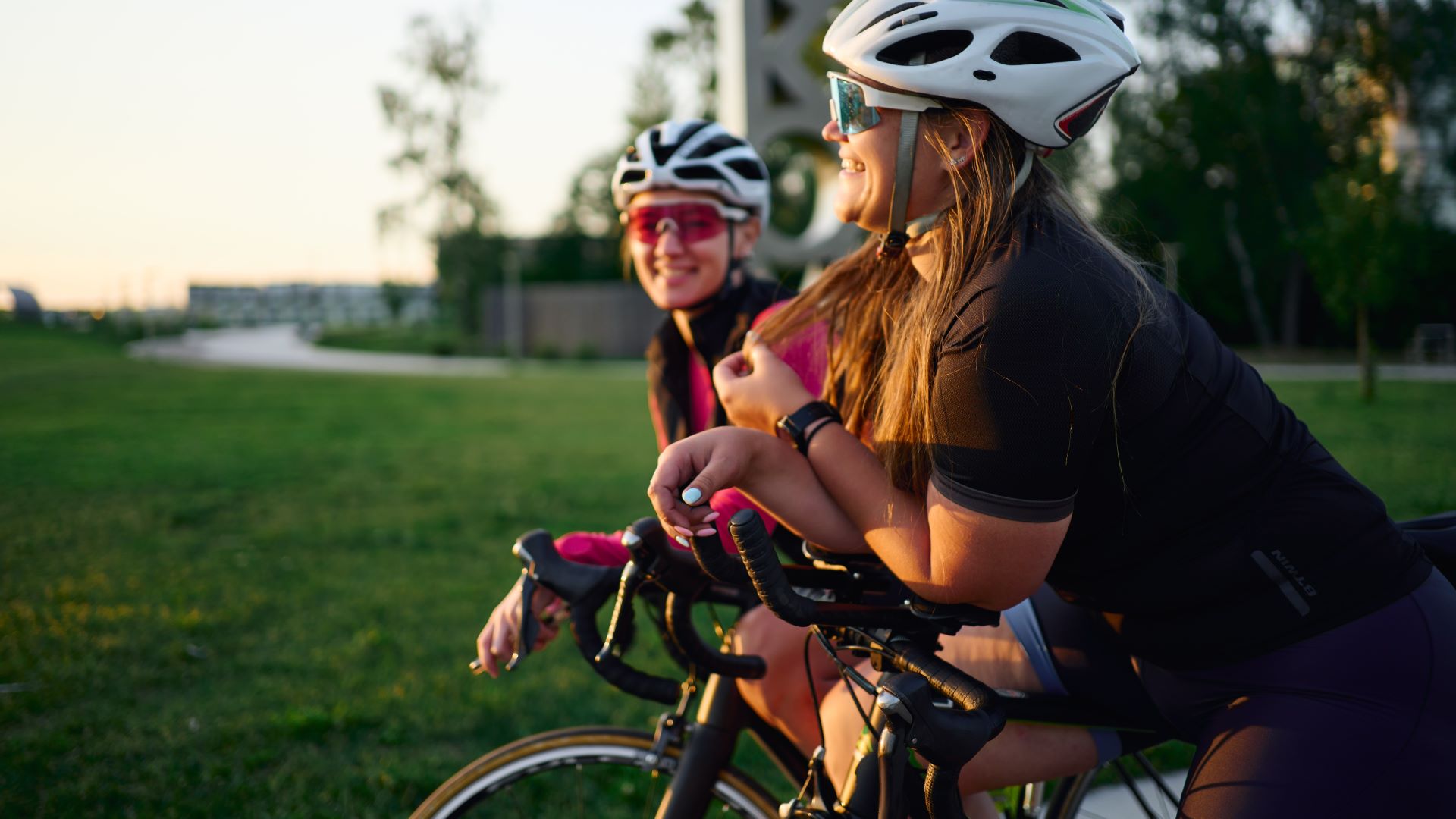 How I got my non-cyclist friend hooked on riding bikes — and how you can, too
How I got my non-cyclist friend hooked on riding bikes — and how you can, tooWith a little bit of gentle guidance, “bikes aren’t my thing” can turn into “when’s our next ride?”
By Marley Blonsky
